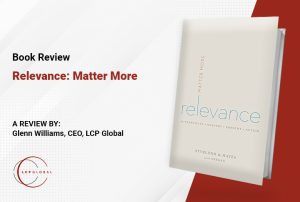Coaching is not as much a tool or process that supports leaders in making lasting changes in their lives, but an evolutionary journey that helps them to identify and clarify what is important to them, set goals, overcome obstacles, understand how to lead and mobilize others, and create action plans that keep them focused on implementing what needs to happen.
While very much a collaborative process that involves active listening, open-ended questions and direct feedback, coaching provides a space clients can trust; where they can be transparent about the challenges they’re facing and how they feel about those often on a deeply personal level. When a coaching engagement centers on the coach (or even the process!) more than the client, this becomes the moment when clients are disempowered from taking responsibility for their growth and the changes needed to facilitate this, along with the outcomes they expect and hope to see. What we do know is, when leaders are encouraged to take responsibility for their personal and professional growth, and empowered with fresh perspectives, new insights, and strategies for accomplishing their goals, it yields results and contributes to further growth over time.
Creating awareness of what might need to change
For coaching to lead to the development of positive behaviors, good decisions, and actions that allow leaders to achieve high levels of performance, it requires creating an awareness for them of what is working well and what isn’t, and why this might be the case. It also means helping them to explore the underlying thoughts, emotions, and beliefs that prevent them from learning and adapting to the situations they encounter. Once these things are brought to light, individuals can begin to shift their perspectives and make different choices that will lead them to experience preferred outcomes.
When coaching leaders, the concept of capacity is often raised. Do they have the energy or bandwidth to deliver a result? Do they know how to leverage their strengths, skills, and experience in the best possible way? Are they comfortable surrounding themselves with people who are more competent than them in some areas? Consequently, LCP Global has a great interest in measuring how well coaching can increase leadership capacity and help them to achieve their goals. While some people are born with certain leadership qualities, it is known that many of these qualities can be developed through coaching. Coaching can help individuals to increase and enhance their leadership capacity by working on things like self-awareness, their interpersonal skills, understanding how to leverage their strengths, communication, collaboration, and adaptability. Taking time to reflect and gain feedback are also extremely important.
Experience in coaching leaders across Australia, Europe, the Middle East, South-East Asia, and the U.S. has demonstrated for LCP Global that coaching must be aligned with the needs of each individual leader. As well as considering their current leadership context, exploring how their personal and professional goals can create conflict, stress, and cause a significant drain on their capacity and performance is something that should not be overlooked.
With the focus on creating long-term change and not merely looking for short-term gains, the framework created by LCP Global introduces a comprehensive coaching process that helps leaders align their efforts around five leadership anchors using a strengths-based approach.

A strengths-based approach
Conventional wisdom around coaching often focuses on fixing weaknesses, but this can actually lead to further disempowerment and a feeling of inadequacy, not to mention a preoccupation looking at what is wrong and missing on seeing what is working well that could be leveraged further.
To mitigate this, the LCP® approach combines Appreciative Inquiry and a strengths-based model that helps to create a personalized leadership development framework for each individual. This helps them to identify and build on their strengths, as well as create a vision for what they want to achieve. The focus on personalization is key because it ensures the coaching process is relevant and helpful for each individual, rather than a one-size-fits-all approach. Effectiveness is measured by monitoring momentum and performance (outputs) and how this aligns with the goals they have set. This systematic process creates a new growth trajectory for leaders; one that they can evaluate and adapt to with the automated 90-Day Goal Tracking process.
Alignment with 5 Leadership Anchors™
The 5 Leadership Anchors are:
- A leader's external relationships
- A leader's symbols of success
- A leader's value code
- A leader's personal script
- A leader's trajectory
- Where have I come from? What, and who has influenced me the most?
- What motivates me? When am I fulfilled the most? What energizes me?
- What influences the way I make decisions? How do I manage risk?
- What hinders me or constrains me from achieving my goals?
- How can I perform better? In which areas do I need to develop?
- What relationships are most important to my wellbeing and performance?
- How well am I able to change direction or adapt my goals when necessary?
Looking beyond performance to growth that is sustainable and compounding in its effect
Answering the questions above can provide valuable insights for the individual and coach and help to lay a foundation from which sustainable growth and enhanced performance can occur. Leaders can expect to come away from the coaching experience with a much greater understanding of themselves, as well as the tools and techniques they need for leading more effectively today, tomorrow and into the future. What is reassuring is, when the executive coach and the client look beyond short-term gains to the potential of what can be accomplished longer-term, great things can happen.
LCP Global’s approach to coaching has helped countless individuals to increase their leadership capacity and achieve their desired outcomes. If you’re interested in learning more about how coaching can help you or your organization, we’d love to discuss how we can tailor a program to meet your specific needs.



